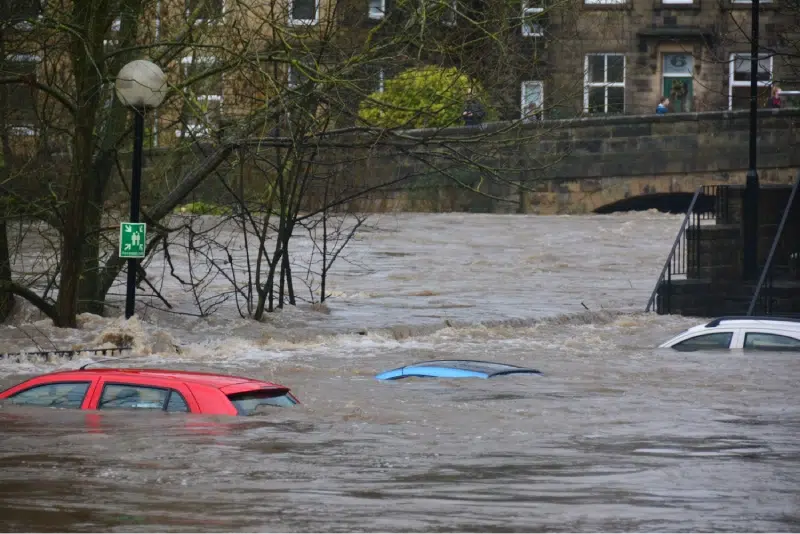Landlord Negligence and Right to Return – Fire, Flood or Disaster
If a landlord’s wrongful or negligent act causes a fire, a tenant may recover medical bills, moving costs, rent for a replacement apartment, and loss of property. See Civil Code § 1714. A tenant has two years to file a claim for damage or injury caused by fire. Code of Civil Procedure § 335.1.
A tenant must show that the fire was caused by the landlord’s negligence. This is not always easy to do and will often require the tenant to hire a private fire investigator to prove the origin and cause of the fire.
A landlord is liable for conditions that the landlord knew or should have known about. Here are some examples of landlord negligence:
- Knowledge of flammable chemicals;
- Installation of defective electrical wiring;
- Knowledge of electrical dimming, surging or blackouts;
- Failure to get proper permits for electrical installation;
- Faulty repair of a heating system;
- Failure to maintain fire extinguishers or fire suppression systems;
- Failure to occasionally inspect the premises for hazards;
- Failure to impede dangerous tenant activity or criminal activity;
- Landlord failure to provide proper security against arson; and
- Failure to repair faulty electrical outlets and light switches.
See Evans v. Thomason, 72 Cal. App. 3d 978 (1977).The failure of a landlord to install, inspect or repair smoke detectors may also give rise to liability if the smoke detector would have prevented or slowed the fire.
Landlord negligence is presumed in two circumstances. First, negligence will be presumed where a landlord has violated a state or local statute. Evid. Code § 669. This is known as negligence per se. For example, if a landlord did not get the proper permits for electrical installation and the installation led to fire, negligence will be presumed. Second, negligence may be presumed where the fire started in an area exclusively used and controlled by the landlord or the landlord’s agent. This is known as res ipsa loquitor. For example, negligence will be presumed where a fire began in a locked boiler room that only the landlord and the landlord’s repair person had access to.
A landlord will also be held liable for a fire caused by an act of an employee, sub-contactor, or independent contractor. Golden v. Conway, 55 Cal. App. 3d 948 (1976). This is known as vicarious liability. In Golden, a landlord was vicariously liable for fire damage from an independent contractor’s negligent installation of a wall heater. Id.
It is important to note that a tenant may be liable for a fire caused by the tenant’s negligence or the negligence of someone who was hired by tenant to do repairs or alterations. Pappas v. Carson, 50 Cal. App. 3d 261 (1975). Similarly, when a tenant’s guest causes a fire, the tenant may be held liable. Allstate Ins. Co. v. Fritz, 452 F.3d 316 (2006).
Hiring a Fire Investigator
One of the most important things a tenant can do to preserve rights after a fire is to hire a private fire investigator. The investigator will determine the cause and origin of the fire. In fire cases, landlords, insurance carriers and landlord attorneys will hire investigators to disprove landlord liability. The tenant must hire an expert to show otherwise. There are two types of fire investigators: public and private. Public fire investigators are employed by the fire department. A tenant will have the right to get the public fire report. It is usually a brief statement about the origin and cause of the fire. The public report will not be conclusive on the issue of the cause of the fire. Private fire investigators often dispute the findings of the public inspector.
If major injuries and property loss are at issue, liability will come down to a battle of fire experts. The landlord will have their expert, and the tenant should hire one too. The fire investigator will do lab analysis and write a report summarizing what happened. The report will include photos, statements from witnesses, and statutes violated.
Right to Return After Fire, Flood or Disaster
If an apartment is under rent control, the tenant has a right to return following a fire, flood or disaster. San Francisco Rent Board Rules and Regulations § 12.19. If the apartment is not covered by rent control, there is no right to return. But, a non-rent-controlled tenant may still recover damages for breach of the lease. Damages include moving costs and the costs of a replacement apartment. If the tenant had a long-term lease at the time of the fire, the tenant can recover the amount it will cost for a replacement unit for the remainder of the lease. At the very least, a non-rent-controlled tenant should try to negotiate a right to return if they are still on good terms with the landlord.
For rent controlled tenants in San Francisco, a tenant forced to vacate due to fire or other disaster must be offered the renovated unit back by the landlord within thirty days of completion of repairs. Id. The tenant must accept the offer within forty-five days. All terms of the rental agreement should be the same as before. If the renovated unit is offered to someone other than the tenant, or the landlord refuses to let you return to the unit, this is a wrongful eviction. The displaced tenant is entitled to actual and punitive damages. Aguirre v. Lee, 20 Cal. App. 4th 1646 (1993). The statute of limitations for a claim of wrongful eviction under the San Francisco Rent Ordinance is one year.



